The best aluminium gravel bikes – also often called alloy gravel bikes – offer great value for money. Since aluminium gravel bikes are cheaper to manufacture than carbon gravel bikes or titanium gravel bikes, they are ideal if you're just dipping your toe into gravel riding and don't want to spend too much.
Aluminium gravel bikes also tend to make great commuter bikes, because they're robust and can take wide tyres but still usually enable you to fit gravel mudguards and a rear rack.
Here's our pick of the best aluminium gravel bikes that our expert testers – who clock up thousands of hours of ride time and years of experience between them – have ridden and rated.
Towards the bottom of the page, we've got a buyer's guide to aluminium gravel bikes, which explains why they feature among the best gravel bikes.
If you're attracted to aluminium gravel bikes because of their value for money, you can also check out our guides to the best gravel bikes under £2,000 and the best gravel bikes under £1,000.
Best aluminium gravel bikes in 2024
Boardman ADV 8.9
- Buy now from Halfords
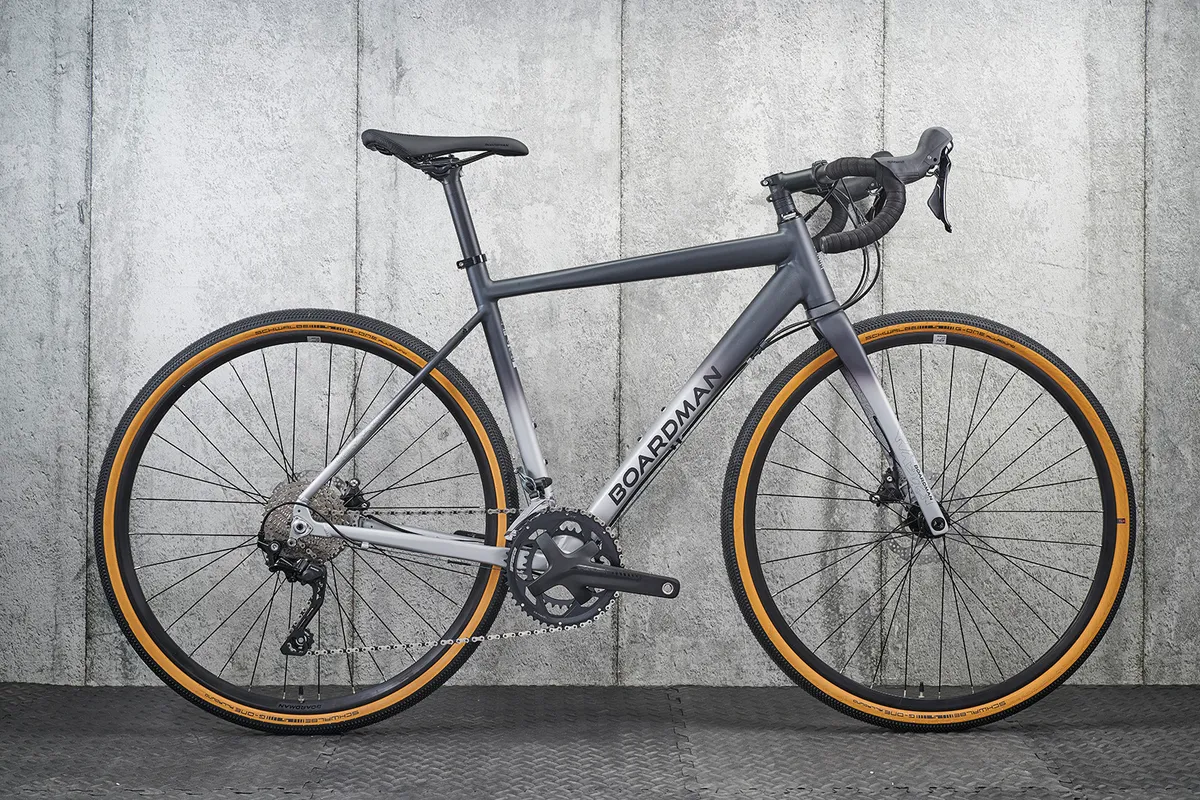
- £1,150 as tested
- Pros: Good spec for the money; energetic ride; proper all-rounder
- Cons: Handlebar can transmit vibration at high tyre pressures
The Boardman ADV 8.9 uses the brand's alloy frame. It still offers excellent value and spent two years as our Budget Bike of the Year. Its alloy frame provides plenty of stiffness for good power transmission and it's equipped with quality Boardman finishing kit.
It's equipped with a Shimano GRX RX400 10-speed groupset, which gives a wide range of ratios, mechanical disc brakes and tubeless-ready wheels. Although the cables run externally, the shifting still functions well. It's about the cheapest you can get a 'real' gravel bike that rides well and doesn't make too many spec compromises.
We've also reviewed the Boardman ADV 8.6, which has the same alloy frame but is equipped with a 9-speed Shimano Sora groupset and offers an even lower-priced entry into the world of gravel riding.
- Read our full Boardman ADV 8.9 review
- Buy now from Halfords
Canyon Grail 6
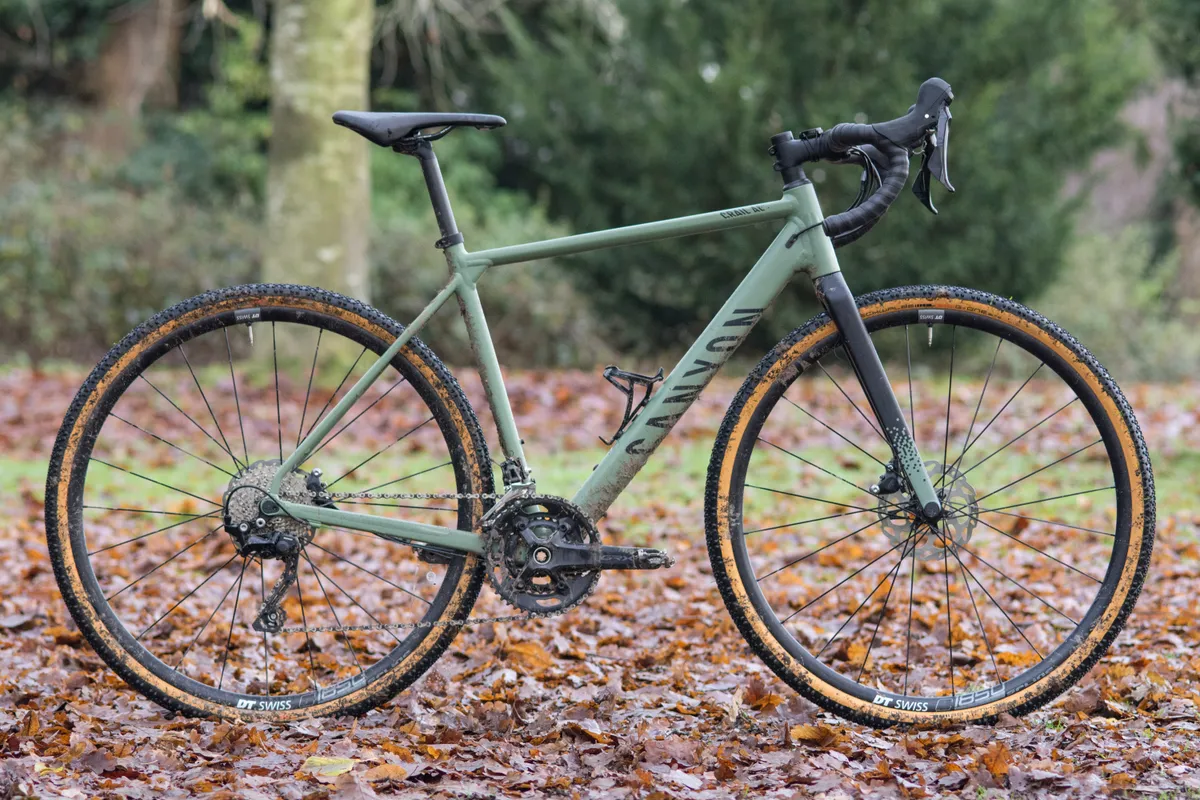
- £1,649 / $1,699 / €1,499 / AU$2,349 as tested
- Pros: Top components for the cash; amazing performance for the money; gravel-specific gear ratios
- Cons: Older model had better spec for the price
Unlike the carbon Grail, the alloy version has a conventional gravel handlebar and stem setup. Some riders may prefer this.
Canyon offers a quality spec for the price, with a 10-speed Shimano GRX RX400 groupset including the hydraulic disc brakes. The alloy wheels come from DT Swiss with quality 40mm Schwalbe G-One Bite gravel tyres.
The gravel-specific gearing means there's the range for off-road riding, and that's paired with a confidence-inspiring ride on gravel and decent tarmac performance. We've also reviewed the women's-specific Canyon Grail 6 WMN, although that bike has now been superseded by the offer of smaller sizes of the standard Grail 6.
Focus Atlas 6.8
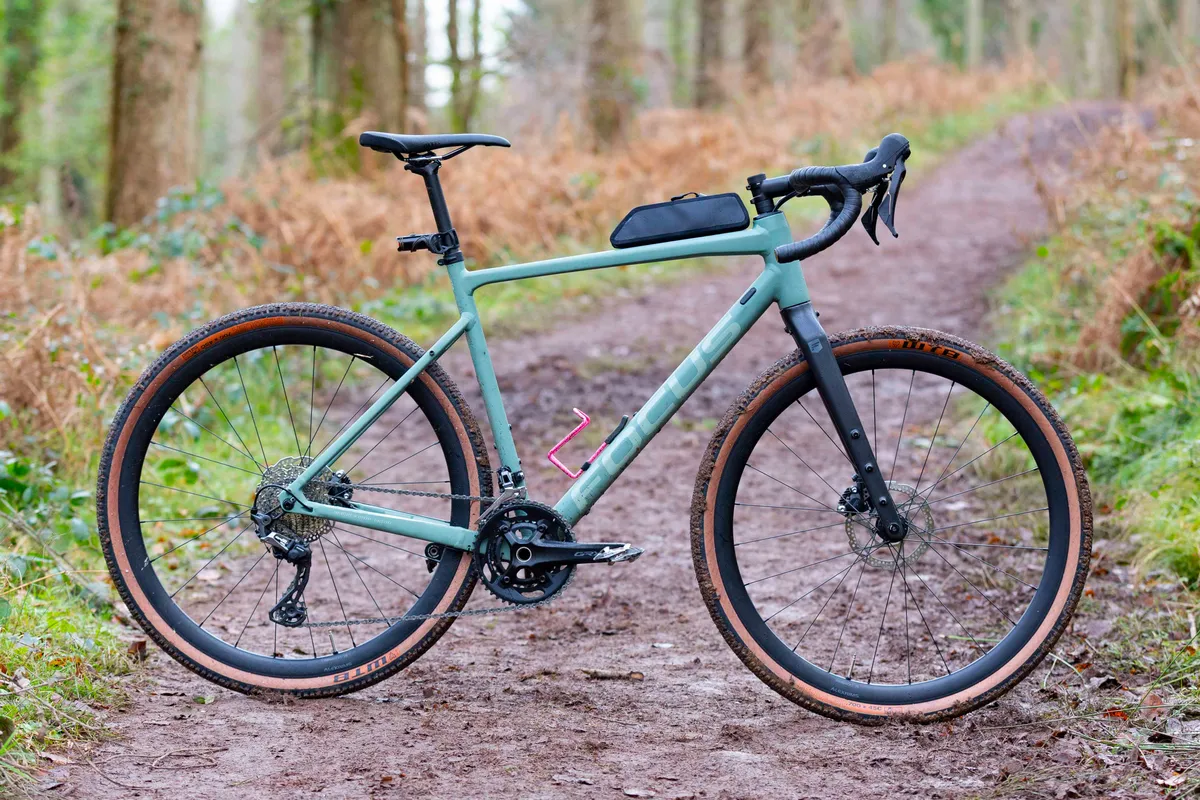
- £1,899 / €1,999 / AU$3,099 as tested
- Pros: Touring and bikepacking-friendly; progressive geometry; excellent-value package
- Cons: Boost spacing limits wheel upgrades; top tube bag rattles
Focus makes a carbon Atlas, which sits above this good-value alloy model. The alloy Atlas we've tested is well configured for bikepacking, with plenty of mounting points, but its progressive geometry means it's also effective for more technical off-road use.
The groupset is a mix of Shimano's top GRX 800 and mid-range GRX 600. That's paired with tough Alex rims on wheels with Boost spacing and 45mm WTB Riddler gravel bike tyres. The Boost spacing means any wheel upgrade is likely to require an MTB wheelset.
Kinesis Tripster AT
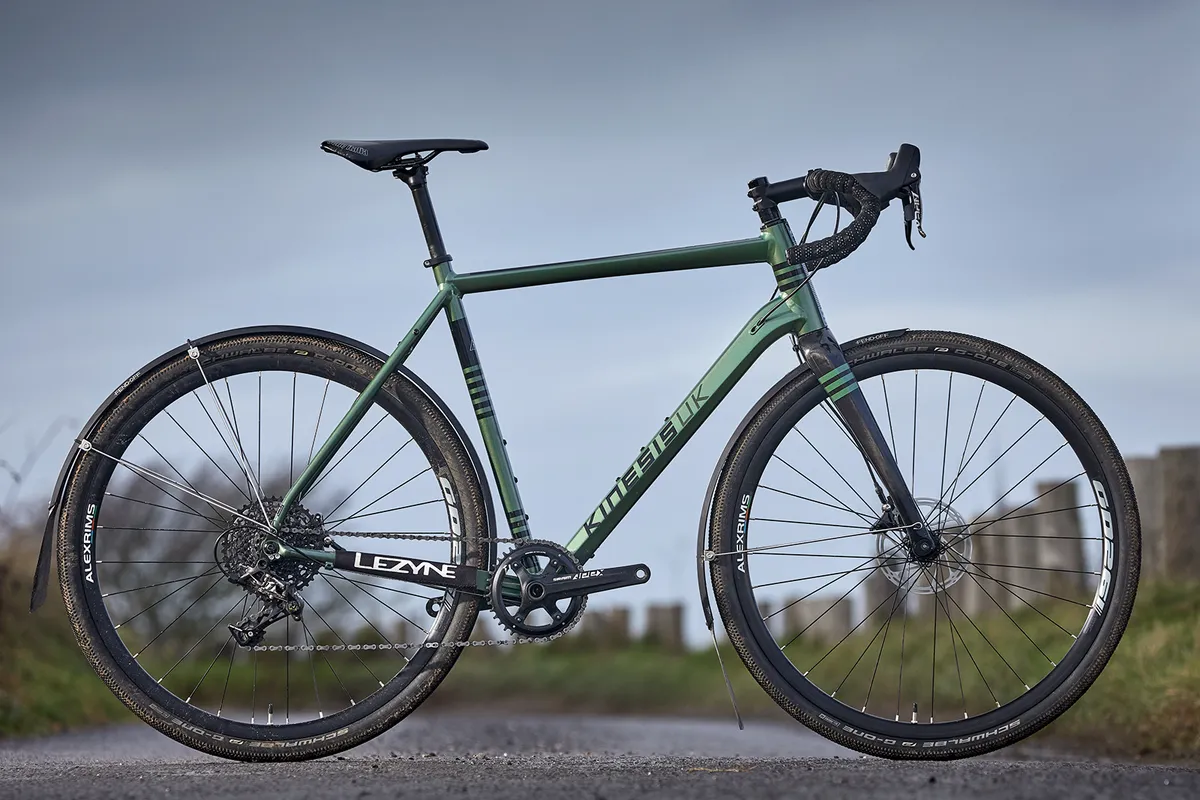
- £1,850 (mudguards extra £60) as tested
- Pros: Wonderfully thought-out frame; great handling and lots of fun; good mudguards
- Cons: Occasional mis-shifts; slippery saddle
With AT signifying all terrain, the Tripster AT from Sussex-based Kinesis is a bike designed for all-road riding including gravel, tarmac, commutes and winter training. As such, it's very practical with mounts for mudguards, but also space for 52mm tyres if you want to head off-road.
The Tripster AT is an enjoyable ride with enough stiffness for sprints, as well as tackling gnarlier off-road terrain. There's the gearing from the SRAM 1x drivetrain to tackle climbs and the simplicity to manage hostile conditions. We rated the sturdy mudguards, which are an extra, highly.
Voodoo Nakisi
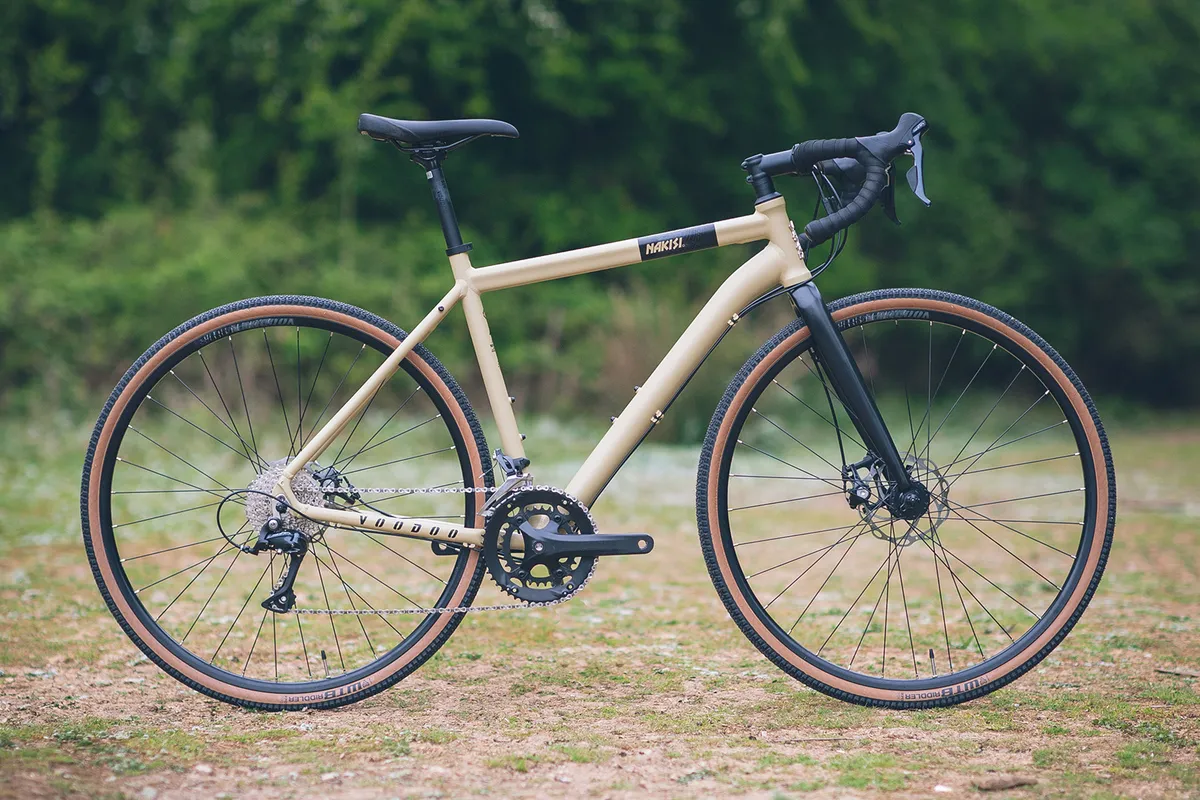
- £650 as tested
- Pros: Cheap and cheerful; well kitted out
- Cons: Heavy
Voodoo is Halfords' in-house MTB brand, but it has strayed into gravel territory with the Nakisi, which is a bargain gravel option, although it could cover commuting duties as well. Mounts for mudguards and a rack ensure the bike's versatility and there's wide tyre clearance too.
Despite its price, Voodoo has specced a 9-speed Shimano Sora groupset, rather than the cheaper 8-speed Claris. This provides a good gear range and enables you to tackle hills more comfortably despite the bike's 11kg-plus weight.
Ribble Gravel AL Enthusiast SRAM Rival 1x
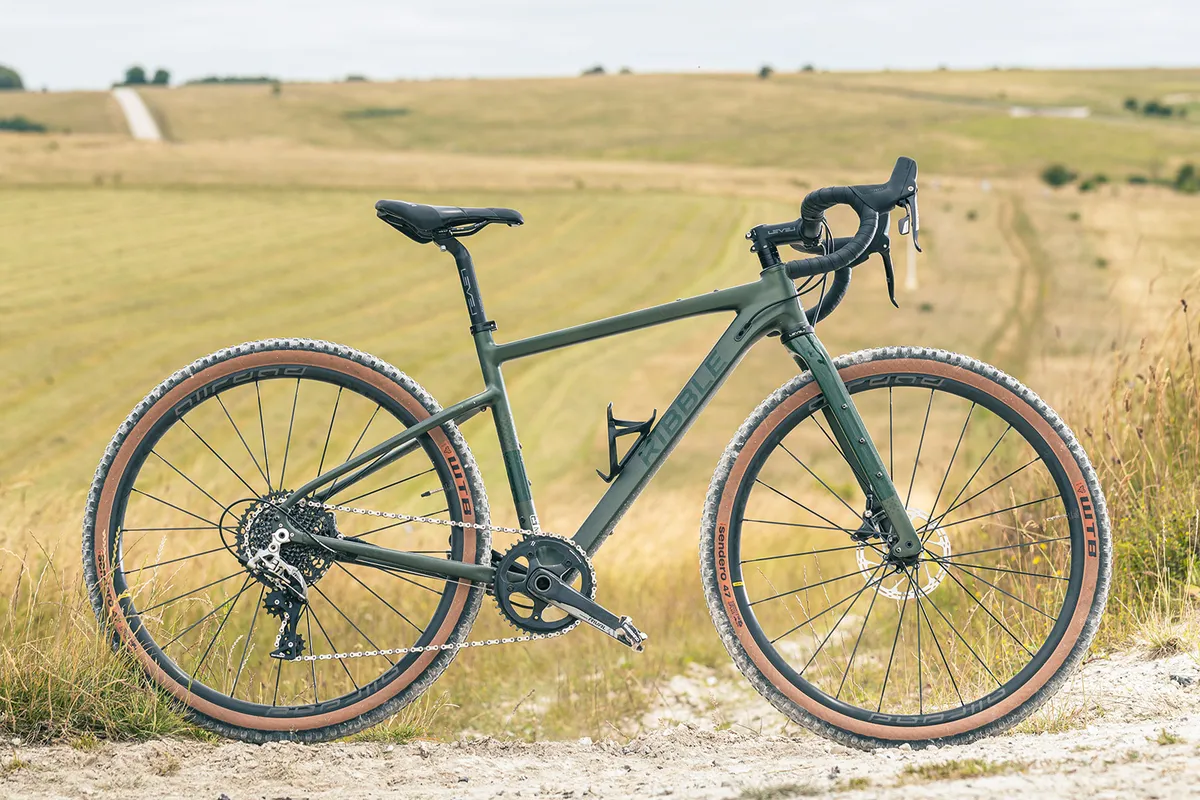
- £1,999 / $1,967 / €1,964 / AU$2,853 as tested
- Pros: Great on technical terrain; fairly lightweight build; well-specced for the price
- Cons: Long reach; draggy tyres; large 42-tooth chainring
We were impressed by the quality of the welds on the Ribble Gravel AL, which offers a quality spec with 650b Mavic Allroad wheels, making for great capability over rougher ground. There's tyre clearance for 47mm 650b or 45mm 700c rubber.
As usual, Ribble gives you plenty of stock spec and upgrade options, with the review bike featuring SRAM Rival 1 11-speed mechanical shifting. Finishing kit comes from Ribble's in-house Level brand.
Cannondale Topstone Alloy 2
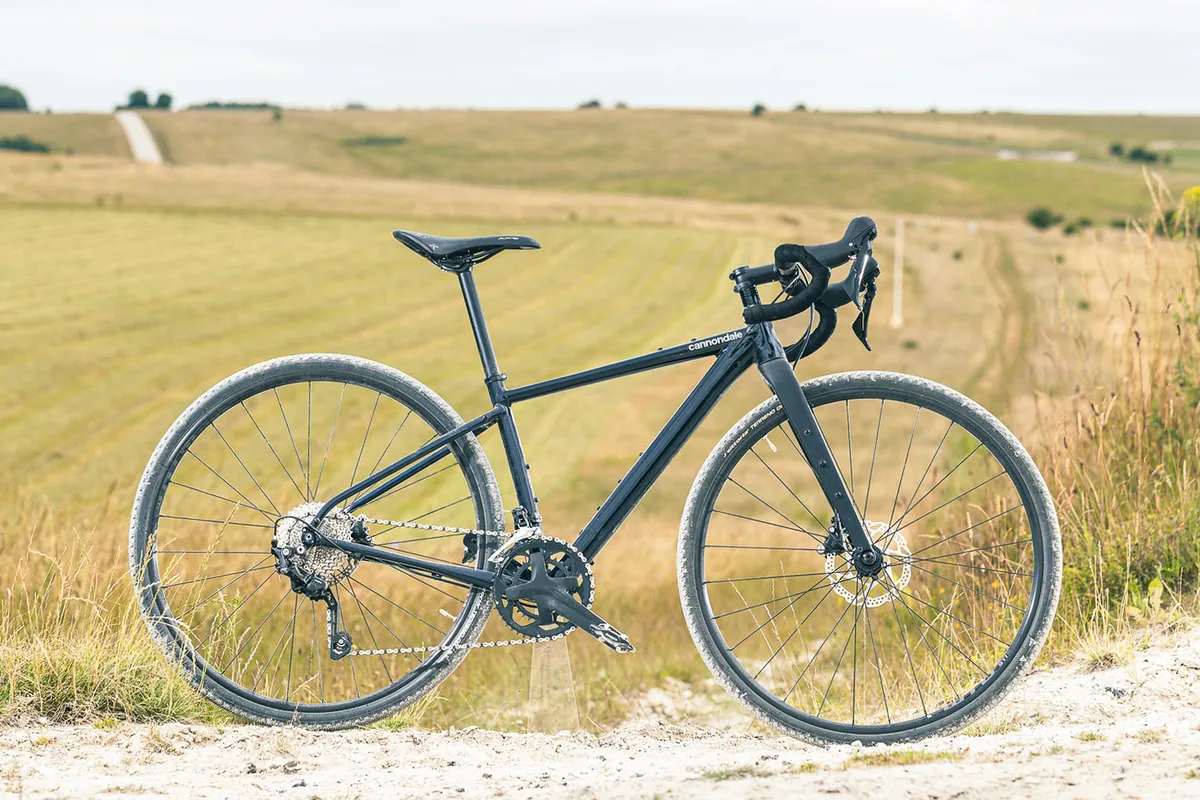
- £1,800 / $1,925 / €2,199 / AU$3,199 as tested
- Pros: Plentiful accessory mounts boost versatility; great tyres for light gravel and road riding
- Cons: 10-speed groupset; relatively narrow tyres
Cannondale has been making quality aluminium bike frames since the 1990s and its accumulated expertise shows in the Topstone Alloy. Post-update in mid-2022, the bike now has 45mm tyre clearance, extra mounting points and features dropped seatstays.
The spec tested includes 10-speed Shimano GRX shifting and 37mm Vittoria Terreno Dry tyres on WTB rims. The tyres are a bit narrow and smooth-treaded for more technical or muddy rides, but roll well on smoother surfaces and tarmac.
Genesis Fugio 30
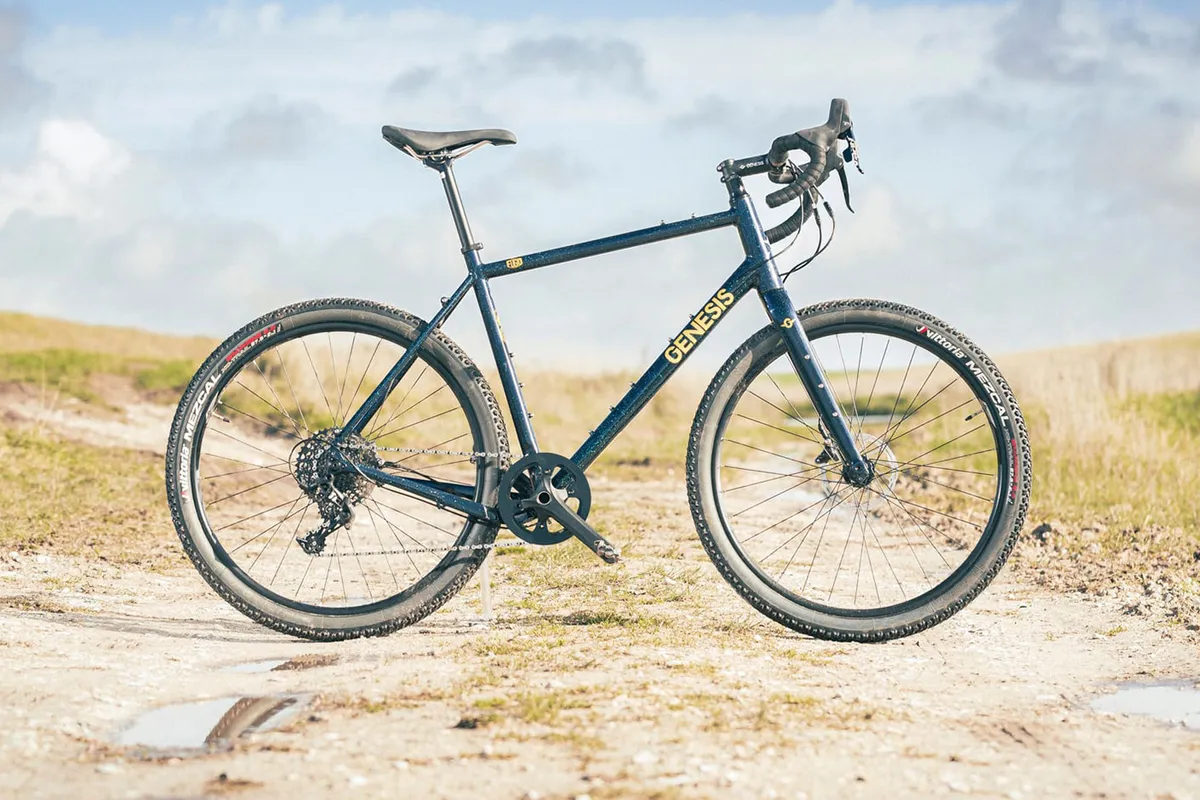
- £2,000 as tested
- Pros: Fun to ride; competitive price; good looks
- Cons: Slow on tarmac; some downgraded parts
The latest Genesis Fugio has traded steel for aluminium, shedding roughly 500g and proving to be great fun to ride.
It’s not the fastest on tarmac, but with relaxed geometry and clearance for 57mm tyres, it will be perfect for riding over tough terrain and tackling big adventures.
Genesis has downgraded a few components, but the Fugio 30 is still competitively priced at £2,000.
Merida Silex 400
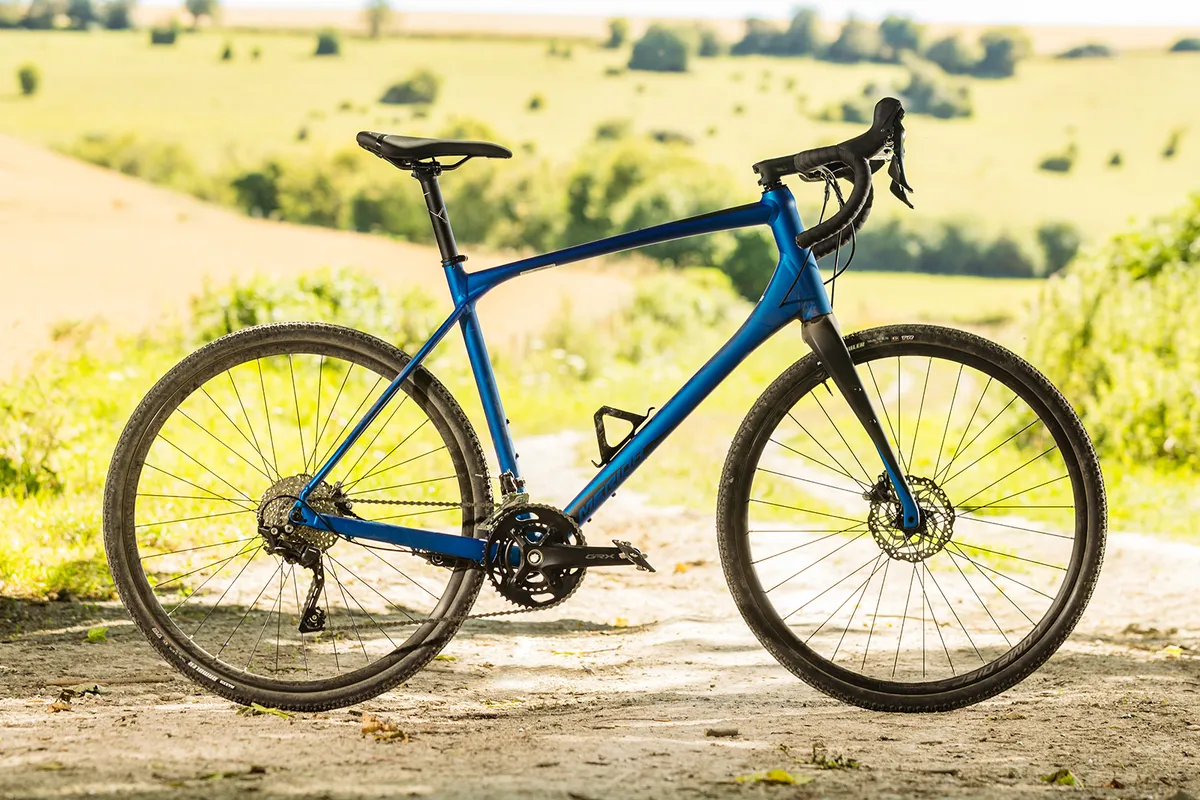
- £1,400 / €1,499 / AU$2,199 as tested
- Pros: Unusual MTB-inspired geometry; quality hydraulic disc groupset; good overall value
- Cons: Sticky freehub; narrow rim width
The Merida Silex comes at gravel from an MTB perspective, which translates to a long reach and a high stack. Along with the short stem, this makes the bike eminently flickable off-road and leads to great handling.
Other features set the bike up for mixed use, with mudguard and rack mounts and fork leg bosses for bikepacking. The 400 spec is equipped with 10-speed Shimano GRX gravel shifting. We'd go wider than the 38mm Maxxis Rambler tyres provided for more off-road grip though.
The bike can fit either 700c or 650b gravel wheels.
We've also reviewed the carbon-framed Merida Silex+ 6000, if you're looking for a higher spec.
Nukeproof Digger RS V3
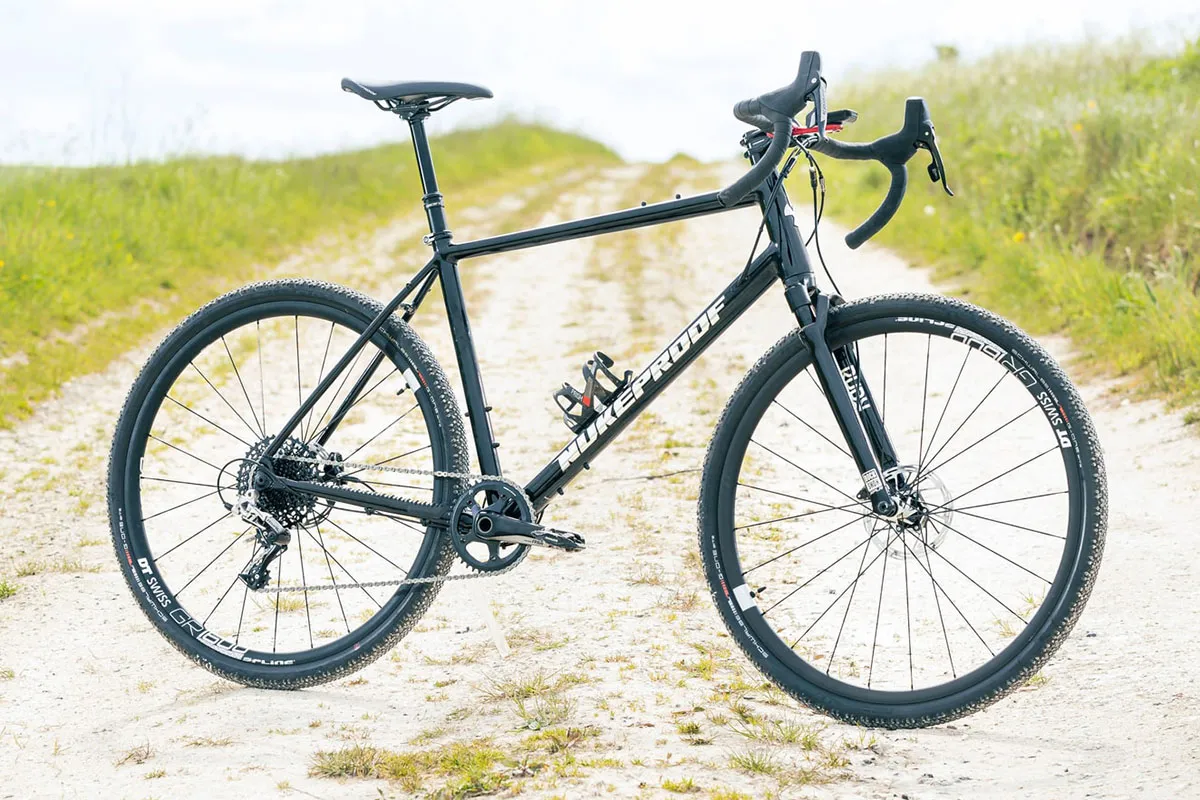
- £3,000 / $2,400 / €3,145 as tested
- Pros: Integrated dropper post; high-spec wheels; excellent fork; rack and mudguard mounts
- Cons: Lacks speed on mellow gravel
The Nukeproof Digger RS V3 is a mountain bike brand's take on a gravel bike.
The superb RockShox Rudy Ultimate XPLR 30mm-travel fork enhances the Digger's technical performance – you can unleash it on steep, bumpy trails better suited to an enduro mountain bike.
Stability on rough stuff comes from the 50cm-wide handlebar and slack head angle, further boosting your confidence. But the Digger feels a bit sluggish on faster gravel roads and when climbing out of the saddle.
On a £3,000 / $2,400 bike, the DT Swiss GR1600 wheels are a relatively premium option. The SRAM Rival 1 groupset works well, but feels outdated compared to newer Apex 1x, 12-speed mechanical.
Vaast A/1
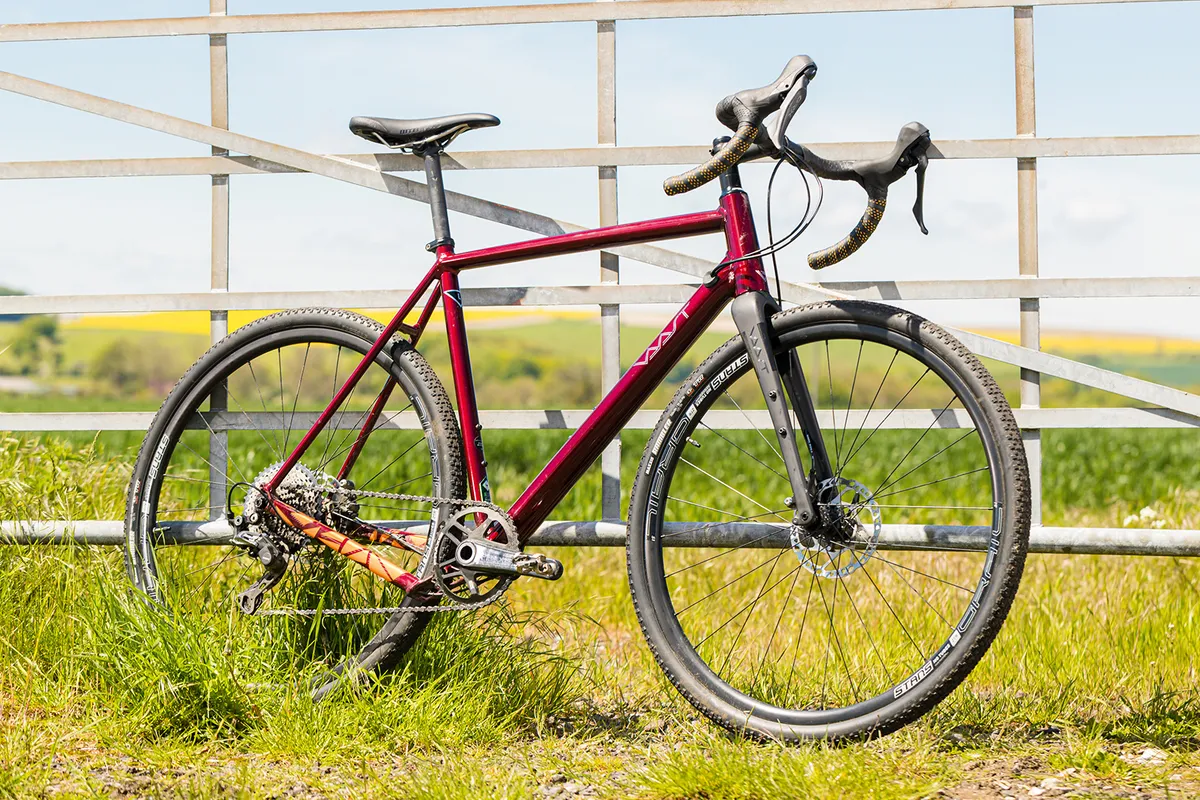
- £2,469 / $2,500 as tested
- Pros: Magnesium alloy frameset with novel trussed chainstays; good vibration absorption; quality spec for the price
- Cons: Creaky seatpost
Okay, the A/1 is not aluminium, but it is alloy (as are steel gravel bikes and titanium gravel bikes), in this case magnesium alloy. Vaast says it's lighter than steel, aluminium or titanium, but stronger and more corrosion-resistant than everything but titanium.
There's a dropped driveside chainstay with a truss, which provides room for 40mm 700c or 47mm 650b tyres. The wheels are Stan's with Maxxis Rambler tyres and the test bike was equipped with a 1x Shimano GRX RX600 11-speed drivetrain with a carbon Praxis crankset.
The geometry is designed for fast gravel grinding and you can fit a gravel dropper post. There's a sprightly spring to the frame over rougher ground, that doesn't detract from the stiff, responsive pedal feel. The straight-legged carbon fork is a little at odds with the plusher rear, however. The main bugbear was a creaking seatpost.
Buyer’s guide to aluminium gravel bikes
What are the advantages of aluminium gravel bikes?
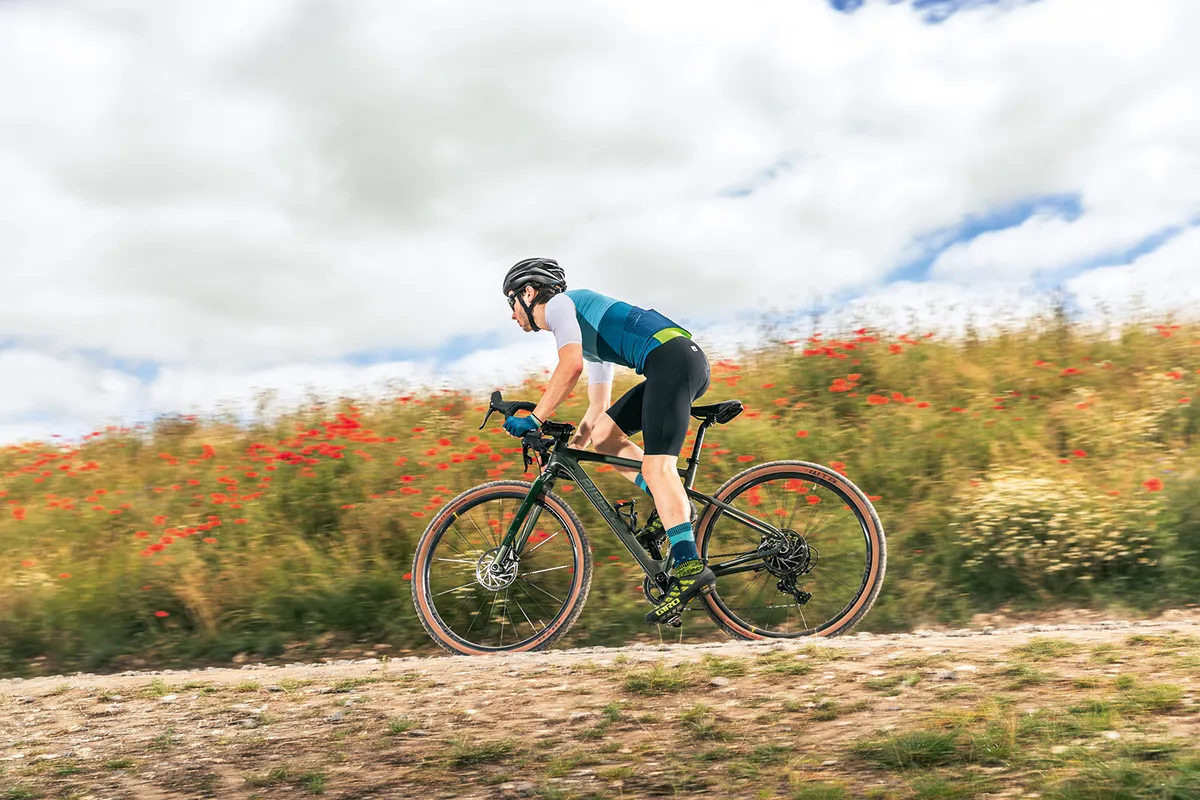
Aluminium gravel bikes tend to be the entry-level offering in the gravel bike ranges of larger brands, with pricier models swapping to carbon fibre frames. As such, they offer a cheaper alternative if you're just getting into gravel and aren't sure if it's for you or what you want.
That also means they tend to offer lower-priced specs, which is an advantage when it comes time for parts replacement – components wear quickly in off-road conditions.
As with the best aluminium road bikes, you may find you get more for your money from an aluminium gravel bike.
Are aluminium gravel bikes heavy?
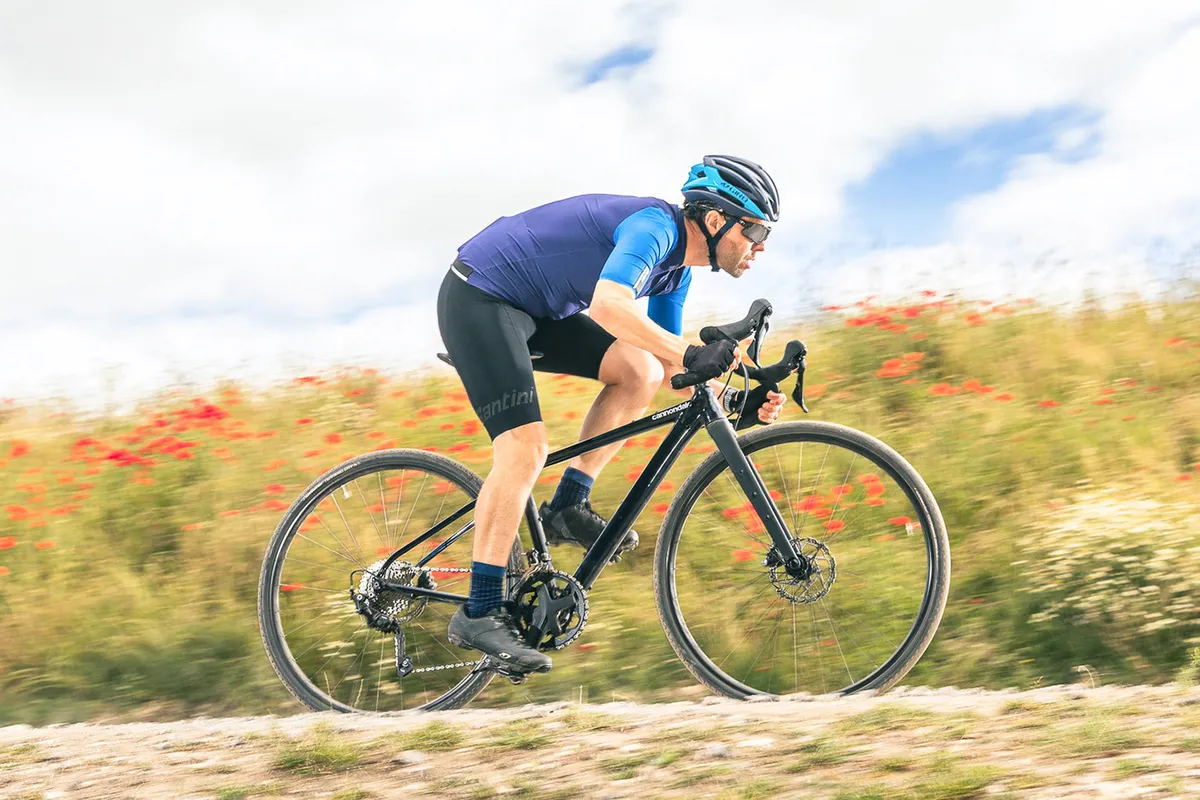
Not necessarily, it depends on how they're constructed. Hydroforming changes the shape and wall thickness of aluminium tubing and can dramatically decrease the weight of the bike's frame. You'll see frames referred to as triple-butted when the tubing has been made thinner in its middle than at its ends.
In some cases, aluminium frames can be lighter than similarly priced carbon frames, so don't discount aluminium gravel bikes because of their weight.
A few choice component upgrades, such as a swap to the best gravel wheels, could also dramatically decrease the bike's weight and change its performance.
Aluminium gravel bikes vs carbon gravel bikes
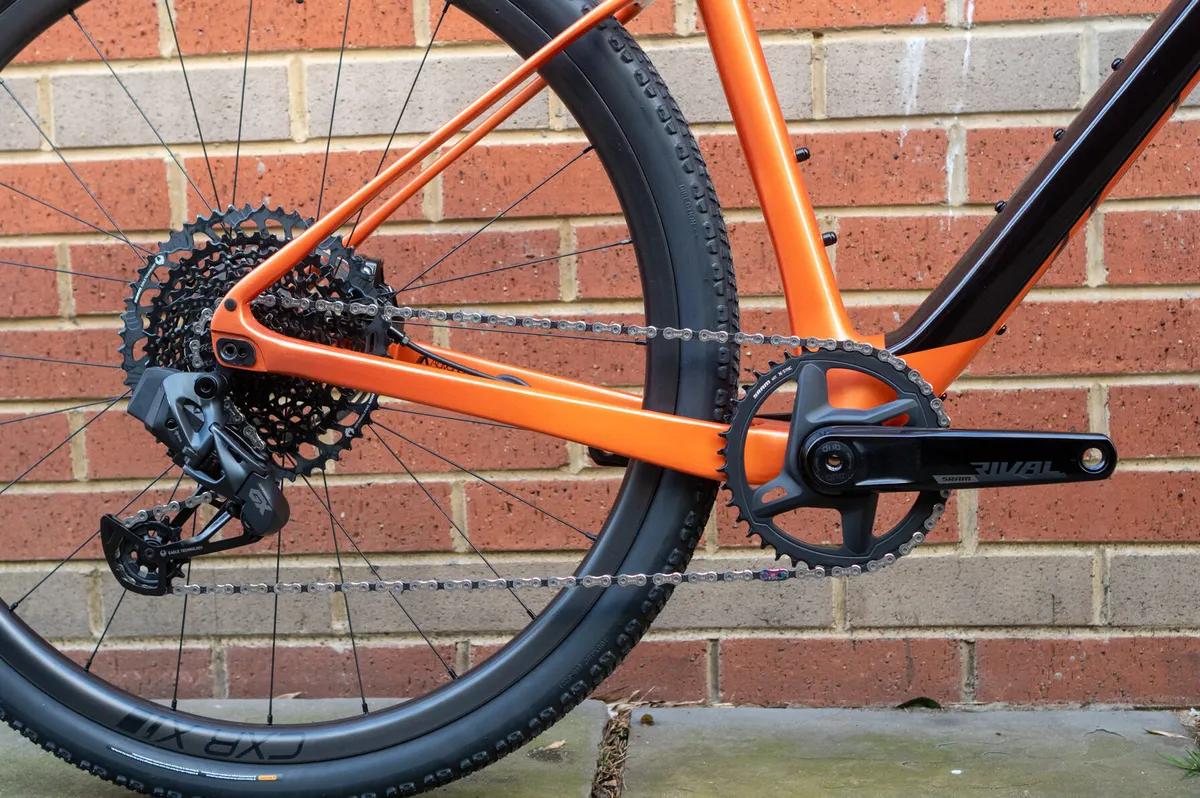
As mentioned above, brands tend to offer their carbon gravel bikes with higher specs. Combined with a lower frame weight that can appreciably decrease the mass of a carbon gravel bike over an aluminium one, particularly if you're prepared to pay more.
You're also more likely to find items such as SRAM's 12-speed wireless AXS groupset on carbon gravel bikes than on aluminium gravel bikes.
As entry-level models, aluminium gravel bikes tend to be generalist machines designed for all-round gravel riding.
However, gravel bikes are becoming more specialist, so if you're looking for a gravel race bike or a gravel bike to tackle steeper, more technical terrain, you're more likely to find such a bike with a carbon frame.
